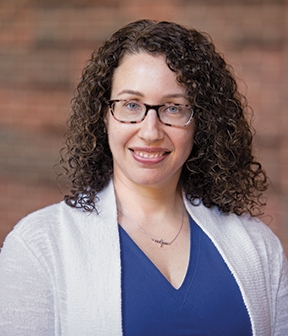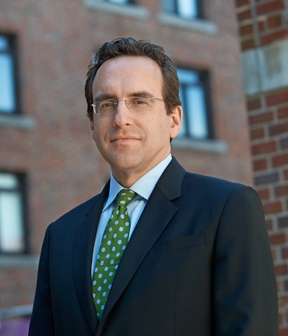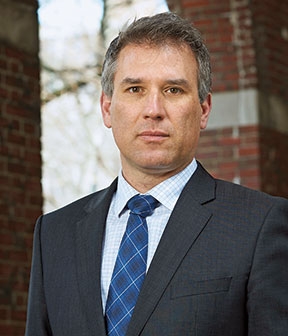This Information Wants to Be Free: Casebooks by NYU Law IP professors are available at no charge

The primary rationale for intellectual property protection is that it’s needed to incentivize people to create expressive work, to invent, and to market products. But some NYU Law IP professors are demonstrating that—at least when it comes to legal textbooks—that incentive isn’t always necessary. This summer, Jeanne Fromer and Christopher Jon Sprigman published Copyright Law: Cases and Materials, which they are making available for download from the internet at no charge. And their colleague John M. Desmarais Professor of Intellectual Property Law Barton Beebe has just released Version 6.0 of Trademark Law: An Open-Source Casebook, which he first published in 2014.
Those who prefer a hard-copy version of the books can order them from Amazon for essentially the cost of printing—$20.26 for Beebe’s and $15.40 for Fromer and Sprigman’s.
Law textbooks typically cost $200 or more, and each year law students can expect to spend well over $1,000 on books. In his preface, Beebe writes that his aim was to show “that it is possible to produce a reasonably serviceable American law school casebook on standard word processing software without the need for the traditional publishers—and their exploitative prices per copy.” Casebooks, Beebe notes, consist primarily of public domain material (such as court opinions), and in his view, publishers provide “almost no value-added.” His opinion of the legal publishing industry is captured by an image on one page on his casebook website that depicts dinosaurs on the verge of extinction by asteroids. The image (below) is, of course, public domain.
Beebe also writes that he hopes his casebook, by being free and online, will be “more accessible to students around the world.” In fact, it is now being used in whole or in part in at least 45 schools, ranging from University of Chicago Law School to King’s College London to Shaheed Zulfiqar Ali Bhutto University of Law in Karachi, Pakistan. “It means a lot to me to receive random emails from around the world thanking me for making the book available for free,” Beebe says.
Saving students money was a primary objective for Fromer and Sprigman as well. “They’re undertaking significant costs throughout law school, and it felt nice to be able to pass on something that would be free or near free,” Fromer says. To give their book a professional look and feel, they hired a designer to create a colorful graphic for the cover (see illustration at the top of this page). And in response to suggestions from students in Fromer’s Copyright Law class last fall—who beta tested an initial version—Fromer and Sprigman improved formatting of the text. Less than three months after its release, their casebook has been adopted by faculty at more than a dozen other law schools, including University of California, Berkeley; Harvard Law School; and National Law University Delhi in New Delhi, India.
“Like all academics,” Sprigman says, “we want students to be exposed to our ideas, and students who learn copyright using our textbook will absorb some of our way of looking at and understanding important issues in the field.”
One example: Fromer and Sprigman ask readers to consider whether the “utilitarian” justification for copyright law—that its protections are needed to motivate authors, artists, and other makers of creative work—always holds true. Creativity, they note, flourishes for such things as fan fiction, fashion goods, recipes, and jokes, which often lack intellectual property protection. And they offer their own powerful counterexample.
Posted September 5, 2019





